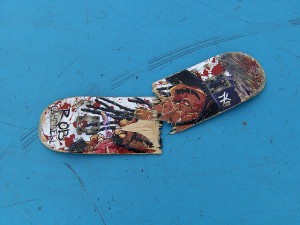by Eleanor Kennedy @Nelllor_
This blog originally appeared on the Mental Elf site on 18th January 2016.
Traumatic Brain Injury (TBI) is classified by The World Health Organization as the leading cause of death and disability among children and young adults worldwide (WHO, 2006, p. 164). An estimated 235 per 100,000 Europeans acquire brain injuries each year, with more than 6 million TBI survivors already living in Europe (Tagliaferri et al, 2006).
There are many long-lasting consequences of TBI including cognitive, behavioural and emotional problems (Barnes & Ward, 2005). Pharmacotherapy interventions have been suggested to alleviate cognitive impairment in TBI sufferers. The current review aimed to assess the evidence for such interventions (Dougall et al, 2015).
 Traumatic brain injury is the leading cause of death and disability among children and young adults worldwide.
Traumatic brain injury is the leading cause of death and disability among children and young adults worldwide.Methods
The Cochrane Dementia and Cognitive Improvement Group’s Specialised Register was searched for studies that examined the effectiveness of pharmacological treatment for cognitive impairment in people with traumatic brain injury. The search included both healthcare databases and trial registers. Studies were included if:
- The study design was either a randomised controlled trial (RCT) or cross-over design study
- The study investigated one centrally acting pharmacological agent that modulate one or more of the main neurotransmitter systems
- Participants had to have experienced the TBI resulting in chronic cognitive impairment at least 12 months prior to assessment
The primary outcomes of interest were performance on psychometric and neuropsychological tests or scores on screening measures that measured memory and cognitive function; global severity of cognitive impairment and global impression of change. Acceptability of treatment (as measured by withdrawal from trial), safety, mortality and subjective benefit were all secondary outcomes.
Analyses were carried out on results from phase one of each included study.
Results
Four studies in total were included in the review (3 from the United States, one from Sweden). Seven RCTs that matched inclusion criteria were found, however, two cross-over design studies could not be included as data for phase one was not available from the authors; another study was not included due to the lack of a placebo control. Table 1 summarises the treatments and participants.
| Study | N Participants | Treatment | Duration of treatment |
| Jhaet al. 2008 | 51 (age 16 to 65) | Modafinil; effects histaminergic, serotonergic, and glutaminergic activity | 4 weeks |
| Johansson et al. 2012 | 12 (age 30 to 65) | (−)-OSU6162; monoamine stabiliser agent with dopaminergic and serotonergic effects | 4 weeks |
| Ripley et al. 2014 | 60 (age 18 to 65) | Atomoxetine; noradrenaline reuptake inhibitor | 2 weeks |
| Silver et al., 2006 | 157 (age 18 to 50) | Rivastigmine; an acetylcholinesterase and butyrylcholinesterase inhibitor | 12 weeks |
Primary outcome
Neither modafinil nor atomoxetine demonstrated superiority over placebo on any measure of cognition. The effects of rivastigmine were superior on one measure in the current review (CANTAB RVIP −44.54 milliseconds, 95% CI −88.62 to −0.46), but not in the original trial. Rivastigmine was also effective on the same measure in a subgroup of participants with greater cognitive impairment.
Superiority over placebo for (−)-OSU6162 was demonstrated in Trail Making Test A (−9.20 seconds, 95% CI −12.19 to −6.21), Trail Making Test B (−6.20 seconds, 95%CI,−7.81 to−4.59) and WAIS-III digit symbol coding (8.60, 95% CI 6.47 to 10.73), however the score in Trail Making Test D was higher for placebo (53.80 seconds, 95% CI 36.76 to 70.24) (Johansson 2012).
Secondary outcomes
Safety and acceptability were two secondary outcomes that were reported on. Participants reported more adverse effects for modafinil and atomoxetine, however this was not statistically supported. One participant required a dose reduction in the (-)-OSU6162 trial due to adverse effects. More participants taking rivastigmine reported nausea compared to those taking placebo (19/80, 23.8%versus 6/77, 7.8%, risk ratio 3.05, 95% CI 1.29 to 7.22). Two people dropped out of the modafinil treatment arm, none in the placebo group. There were no deaths reported in any of the included studies.
Strengths and limitations
The review included only randomised controlled trials to assess the effects of centrally acting pharmacological agents for treatment of chronic cognitive impairment subsequent to traumatic brain injury in adults. There were very strict inclusion criteria and the authors chose to only include data from phase one of the treatment. This is a strength for cross-over design studies particularly as this controls for the possibility of long term treatment effects once a group’s treatment is switched to placebo following pharmacological treatment. However, two studies were excluded because data from phase one were unavailable.
The limited number of included studies, rather than a limitation, is likely to be indicative of a lack of well controlled research into pharmacological treatments for cognitive impairment following TBI.
Conclusions
There was no evidence to support modafinil or atomoxetine as a treatment for cognitive impairment as a result of TBI. There was weak evidence to suggest that rivastigmine may be helpful in the treatment of cognitive impairment in one measure of cognitive functioning in this review, however the same effect was not significant in the original study possibly due to the use of a different statistical test, and the findings that (−)-OSU6162 may be superior to placebo must be interpreted with caution as the sample size in this group was so small (n=6).
Overall the authors concluded that:
there is insufficient evidence to determine whether pharmacological treatment is effective in chronic cognitive impairment in TBI.
Two of the four included studies had fatigue as their primary outcome, which further suggests that more research in the specific area of cognition may be necessary.
In closing, the review highlights a gap in the research in such treatments for TBI, the authors suggest that future research should also focus on outcomes such as neurobehavioral symptoms as well as cognitive impairment and memory performance.
 This review highlights a lack of RCTs that explore the potential value of medication for cognitive impairment following traumatic brain injury.
This review highlights a lack of RCTs that explore the potential value of medication for cognitive impairment following traumatic brain injury.
Links
Primary paper
Dougall D, Poole N, Agrawal N. Pharmacotherapy for chronic cognitive impairment in traumatic brain injury. Cochrane Database of Systematic Reviews 2015, Issue 12. Art. No.: CD009221. DOI: 10.1002/14651858.CD009221.pub2.
Other references
Barnes M, Ward A. (2005) Oxford Handbook of Rehabilitation Medicine. Oxford University Press.
Jha A, Weintraub A, Allshouse A, Morey C, Cusick C, Kittelson J, Gerber D. (2008) A randomized trial of modafinil for the treatment of fatigue and excessive daytime sleepiness in individuals with chronic traumatic brain injury. Journal of Head Trauma Rehabilitation, 23(1), 52–63. doi:10.1097/01.HTR.0000308721.77911.ea (PubMed abstract)
Johansson B, Carlsson A, Carlsson ML, Karlsson M, Nilsson MKL, Nordquist-Brandt E, Rönnbäck L. (2012) Placebo-controlled cross-over study of the monoaminergic stabiliser (-)-OSU6162 in mental fatigue following stroke or traumatic brain injury. Acta Neuropsychiatrica, 24, 266–274. doi:10.1111/j.1601-5215.2012.00678.x [PubMed record]
Ripley DL, Morey CE, Gerber D, Harrison-Felix C, Brenner LA, Pretz CR, Wesnes K. (2014) Atomoxetine for attention deficits following traumatic brain injury: Results from a randomized controlled trial. Brain Injury, 28(January 2016), 1514–1522. doi:10.3109/02699052.2014.919530 [PubMed abstract]
Silver JM, Koumaras B, Chen M, Mirski D, Potkin SG, Reyes P, Gunay I. (2006) Effects of rivastigmine on cognitive function in patients with traumatic brain injury. Neurology, 67, 748–755. [PubMed abstract]
Tagliaferri F, Compagnone C, Korsic M, Servadei F, Kraus J. (2006) A systematic review of brain injury epidemiology in Europe. Acta Neurochirurgica, 148(3), 255–68; discussion 268. doi:10.1007/s00701-005-0651-y [PubMed abstract]
WHO. (2006) Neurological Disorders: Public Health Challenges. World Health Organisation (p. 232).http://www.who.int/mental_health/neurology/neurological_disorders_report_web.pdf
